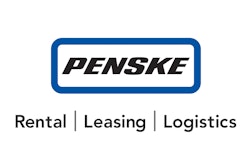Lombard, IL: The Council of Supply Chain Management Professionals (CSCMP ) has released its 22nd "Annual State of Logistics Report,” sponsored by Penske Logistics.
The report reveals that business logistics costs rose to 8.3 percent of U.S. Gross Domestic Product (GDP) in 2010, as compared to 7.7 percent the previous year. Further analysis shows that 2010 was about on par with 2005, and still well below the pre-recession years.
Authored by transportation consultant Rosalyn Wilson of Delcan Inc., the report has tracked and measured all costs associated with moving goods through the U.S. supply chain since 1988. This year’s report presents an overview of the 2010 economy, the industry’s key trends, and the total U.S. logistics costs for 2010 and their percentage of the U.S. GDP.
It also examines which sectors of the industry recovered as well as those that didn’t, and which areas can be targeted for increased profit and growth. The research concludes with industry indicators for the future.
This year’s report revealed that the cost of the U.S. business logistics system jumped up 10.4 percent in 2010, making up for more than half of last year’s decline. Business logistics costs rose to $1.2 trillion, an increase of $114 billion from 2009. Inventory carrying costs increased 10.3 percent last year due to higher costs for taxes, obsolescence, depreciation, and insurance, which were offset by a further drop in the inventory carrying rate and warehousing costs.
Transportation costs were up 10.3 percent from 2009 levels, with trucking lagging behind the performance of other modes, rising only 9.3 percent compared to an average of 15.4 percent for the other modes combined. Manufacturing and business spending were the bright spots during much of 2010, while consumer goods production was almost flat.
Industrial production was up 5.3 percent in 2010, after declining 11.2 percent the year before. The recovery from the recession has been elusive and more prolonged than any other in U.S. history, with the slow growth presenting another year of challenges for the logistics industry.
"As the economy recovers, those companies that use the statistics and industry insight contained in this report will be better prepared for their business activities ahead,” says Rick Blasgen, CSCMP president and CEO.
"This research is a key source of information that not only identifies macro trends and how the logistics discipline is impacted, but also details ways that company leaders can capitalize on the recovery as it occurs,” Blasgen says. "Having this knowledge helps supply chain leaders move forward in a more proactive and fact-driven way.
"Penske’s continued sponsorship of the report underscores the significant contribution that quality research makes in driving thought leadership and innovation in the logistics and supply chain industries,” Blasgen adds.
"We’re pleased to be part of this important report,” says Joe Gallick, senior vice president, sales, for Penske Logistics. "Over the last 12 months, we’ve seen a slow and steady improvement in business globally. We’ve also witnessed the resilience and importance of how well-managed, dynamic supply chains help companies drive down costs, manage inventories, respond to recalls, and adjust to sudden economic shifts and global crises.”
A panel of supply chain executives and government representatives from the U.S. Department of Transportation, Penske Logistics, Macy’s, Adelante SCM Corporation, BNSF Rail and Fortna, Inc., today discussed the implications of the report’s findings on their companies, the industry, and their significance in the coming months.
The "State of Logistics Report” is available to CSCMP members free of charge as part of their member benefits at http://cscmp.org/memberonly/state.asp. The price of the report is $395.00 U.S.


















